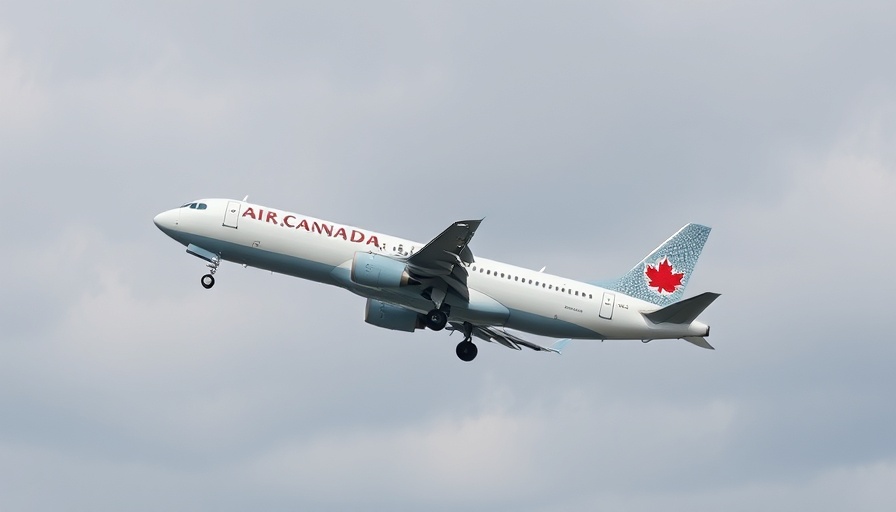
Understanding the Decline in Travel Between the U.S. and Canada
The travel landscape between the U.S. and Canada has shifted dramatically, with flight bookings plummeting by 70% compared to last year. Recent political tensions, including trade embargoes discussed under the previous U.S. administration, have cast a long shadow over this corridor of travel. As business professionals, understanding these shifts can inform strategies around international business relations and cross-border opportunities.
The Impact of Travel Restrictions on Business Connectivity
With fewer flights and tighter restrictions, business connectivity is taking a hit. Travel has always served as the backbone of business expansion, with companies relying on in-person meetings and collaborations. The current state of international travel suggests that companies need to pivot towards digital engagements and remote collaborations. For startups and larger tech industries, this might mean investing in stronger virtual platforms to sustain the momentum of networking and partnerships.
Trends in Business Travel: A Need for Adaptation
Amid these travel woes, business travel trends show a shift in priorities, with a growing emphasis on sustainability and reducing the carbon footprint associated with flying. Companies are reevaluating their strategies and questioning the necessity of in-person meetings. This could have long-lasting effects on how international business dealings occur, potentially accelerating trends toward virtual collaborations that are more environmentally friendly.
Future Outlook: Rebuilding Travel Between the U.S. and Canada
While the current dip in travel may pose challenges, it also offers insights into emerging business opportunities. Companies that adapt to changing dynamics—be it through technology, sustainable practices, or flexible strategies—are likely to thrive. The business community must consider how to strengthen ties despite physical barriers, perhaps by developing innovative frameworks that allow for seamless cooperation without the need for travel.
The Bottom Line: Time for Reevaluation
As flight bookings drop and travel becomes more complicated, it’s essential for business professionals to reexamine their operation models. The decline in travel could lead to creative adaptations that redefine business interactions, focusing on sustainability and digital efficiency. Companies must assess how they can be innovative in maintaining connections and fostering growth amidst these challenges.
Now is the time to rethink your approach to business travel and collaborate on strategies that avoid reliance on physical travel. Embrace this opportunity to enhance your business's resilience in the face of travel disruptions.
 Add Row
Add Row  Add
Add 



Write A Comment